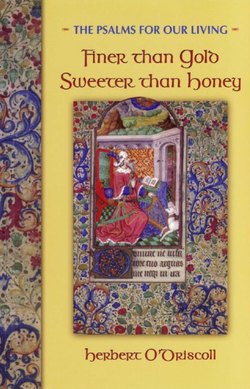Читать книгу The Psalms - Herbert O'Driscoll - Страница 7
На сайте Литреса книга снята с продажи.
ОглавлениеIntroduction
I came to the psalms as a choirboy and a schoolboy. In my memory, a particular room is associated with each experience.
The first is the large high-ceilinged choir room of St. Luke’s Church in Cork, Ireland, where Mr. Garrett, short in stature but rich in those gifts needed to be the master of a boys’ choir, drilled us weekly in the singing of the psalms. For him the psalm was never merely a bridge to be crossed casually from the Venite to the First Lesson. The psalm would initially be explained, at least its main theme. Then, whatever the mood of the psalm might be—tenderness, rage, praise, awe, adoration—that particular feeling was demanded of our singing, sometimes pursued at the cost of seemingly endless repetition.
The second room is the big parish schoolroom. At least, I remember it as large and even cavernous. During the week, the psalms were part of a rich diet of learning by heart—a tradition that was still very much alive in the Ireland of the nineteen thirties and forties. Along with speeches from Shakespeare, passages from Paul’s epistles, prayer book collects, not to mention great prayers (for example, “for all sorts and conditions”) and hymns—all were recited from memory, and all became the ingredients of a process of Christian formation absorbed at a level deeper then mere intellectual understanding.
It was quite extraordinary how deeply the landscapes of scripture blended with the surrounding world of everyday perception. The large eyes of the cattle on my grandfather’s farm became “great bulls of Bashan come about me.” To stand on the beach looking out at the ocean was to hear “there goes that Leviathan,” and to imagine great dark shapes in the unseen depths. To watch the sunrise through the small window of my grandfather’s bedroom was to be aware of a majesty “which cometh forth…out of his chamber, and rejoiceth as a giant to run his course” (The Book of Common Prayer).
Today, in retirement, I find myself as often in a pew as at an altar or in a pulpit. Among my many learnings from the pew is a realization that the psalms, while faithfully sung, are rarely if ever given even the shortest introduction that might help to integrate them into the liturgy; nor are they likely to be a focus of the homily. Consequently, for many people, the psalm tends to stand in isolation from the rest of the liturgy. I sometimes think that, if we were to ask members of a congregation what role the psalm plays in their worship, or what the psalm has communicated to them, many would find it difficult to respond.
Steps are being taken to address this. One will come across various metrical versions of psalms being sung as hymns. There is an increasing use of responsive psalm singing led by a cantor and drawing a response from the congregation. Usually the repeated congregational response serves as a pointer to the overall theme of the psalm.
In no way am I claiming in these pages to define “the meaning” of a psalm. Poetry—and the psalms are among the most sublime poetry in the world—can never have a single meaning. Like all greatwriting, the psalms are inexhaustible wells of meaning arising out of the ongoing inner conversation between the text and the reader or singer. My purpose in these short reflections is to attempt to convey succinctly a particular spiritual insight, or insights, that I discern in the psalm, to point to particular phrases or images that I think will engage spiritual reflection, and, if the reader so desires, to offer material for homiletical preparation.
At the end of each reflection, thanks to the generous help of my publisher Robert Maclennan, there are suggestions that may make these pages useful for personal reflection, group discussion, and prayer.
It has been said that there are two great elements in literature that have succeeded in expressing every aspect of human experience and the human condition: the plays of Shakespeare and—to use their familiar biblical title—the Psalms of David. To the extent that this statement is true, it gives great pause to anyone who assumes to comment on either! These reflections are offered in full acknowledgement of this daunting reality.
